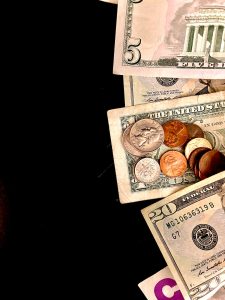The forex market operates 24 hours a day, five days a week. It is a decentralized marketplace where traders from all over the world can buy and sell currencies. As a result of the market’s round-the-clock nature, traders can enter and exit positions at any time of the day or night. However, even though the forex market is open 24/5, traders are still charged swap fees. In this article, we’ll explore why this is the case.
Firstly, it’s important to understand what swap fees are. In the forex market, a swap fee is charged when a trader holds a position overnight. The fee is based on the interest rate differential between the two currencies being traded. If a trader is long a currency with a higher interest rate than the currency they are short, they will earn a positive swap. If a trader is long a currency with a lower interest rate than the currency they are short, they will pay a negative swap.
The reason swap fees are charged is due to the nature of the forex market. Unlike other financial markets, such as stocks or commodities, the forex market is a spot market. This means that when you trade currencies, you are buying and selling them on the spot, which means that the transaction is settled immediately. However, currencies are also considered financial instruments, which means that they generate interest. The interest rate differential between two currencies is what determines the swap fee.
The interest rate differential is determined by the central banks of the respective countries. Central banks use interest rates as a tool to manage inflation and economic growth. If a central bank raises interest rates, it makes borrowing more expensive, which can help to slow down inflation. If a central bank lowers interest rates, it makes borrowing cheaper, which can stimulate economic growth.
When traders hold positions overnight, they are essentially borrowing one currency to buy another. The interest rate differential is what determines the cost of this borrowing. If a trader is borrowing a currency with a higher interest rate, they will earn interest on the position. If a trader is borrowing a currency with a lower interest rate, they will pay interest on the position.
So, even though the forex market operates 24 hours a day, traders are still charged swap fees because of the interest rate differential between the two currencies being traded. The interest rate differential is determined by the central banks of the respective countries and is used as a tool to manage inflation and economic growth.
In conclusion, while the forex market operates 24 hours a day, five days a week, traders are still charged swap fees when they hold positions overnight. The swap fee is based on the interest rate differential between the two currencies being traded and is determined by the central banks of the respective countries. The forex market is a spot market, which means that transactions are settled immediately, but currencies also generate interest, which is what determines the cost of holding a position overnight.






